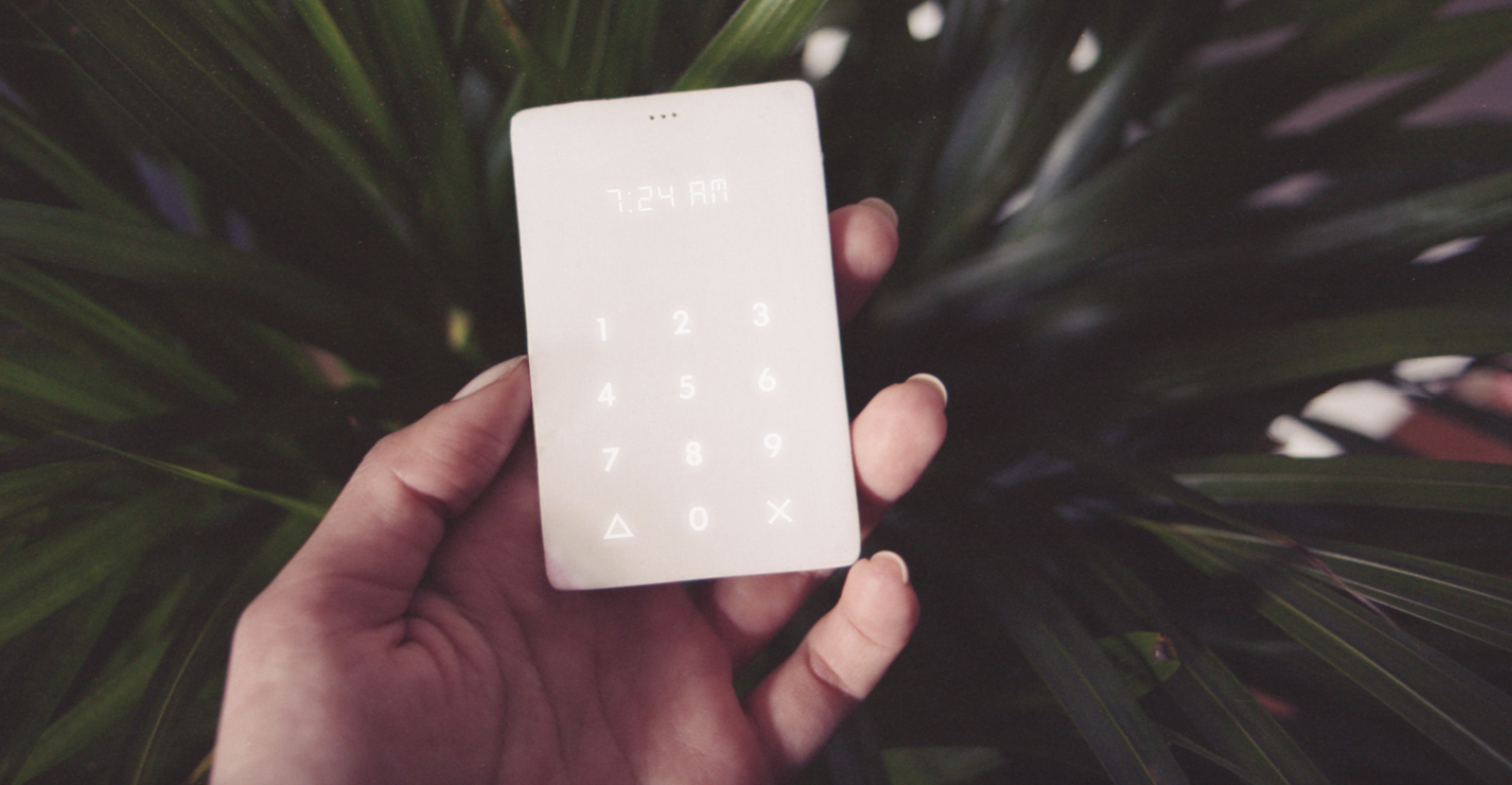This dumb phone might change your life
Or at least help break your iPhone addiction


A free daily email with the biggest news stories of the day – and the best features from TheWeek.com
You are now subscribed
Your newsletter sign-up was successful
Where is your smartphone right now? Is it in your pocket? Sitting on your desk? I'll bet it's within arm's length, if not already in your hand.
Nearly half of all American smartphone owners say they cannot live without their phones, according to a recent study from the Pew Research Center. In 2014, the worldwide smartphone market shipped one billion phones, the first time this has happened in a single year. We are more obsessed with connectivity than ever before. And that's what makes the wild success of a new dumb phone that does close to nothing so interesting.
The Light Phone is the size of a credit card, nearly weightless, and does only one thing: make and receive calls. No texts, no emoji, no Instagram, no Facebook. Its creators, Joe Hollier and Kaiwei Tang, want the Light Phone to be used as little as possible. It is, as John Biggs at TechCrunch says, the anti-smartphone, and it quickly soared beyond its Kickstarter campaign goal of $200,000.
The Week
Escape your echo chamber. Get the facts behind the news, plus analysis from multiple perspectives.

Sign up for The Week's Free Newsletters
From our morning news briefing to a weekly Good News Newsletter, get the best of The Week delivered directly to your inbox.
From our morning news briefing to a weekly Good News Newsletter, get the best of The Week delivered directly to your inbox.
The concept is simple: Light syncs with your smartphone, letting you store up to 10 numbers on speed dial. Incoming calls get forwarded to the Light phone so you don't miss mom or an emergency. Light comes with 500 minutes of pre-paid talk time. The device is tiny, meant to be tucked away and nearly forgotten. Its charge lasts 20 days, and unlike your smartphone, Light doesn't need to be updated, upgraded, or replaced. Also, it's cheap: $100.
But why, at a time when our need for connectivity is at an all-time high, has a phone that blocks connectivity become so popular? Because with constant distraction and communication comes a desperate need for silence. Smartphones have been linked to depression, anxiety, and envy. They're damaging our bodies, preventing us from sleeping, and making us lazy. We know all of this, and we want to do something about it.
But we can't help ourselves.
One recent study published in the International Journal of Cyber Behavior, Psychology and Learning found that 13 percent of participants were "addicted" to their smartphones, spending almost four hours a day on their device. One researcher even suggested putting warning labels on smartphones advertising their addictive properties. For many of us, just having a device in the room or at the table means we have to pick it up, feel it in our hands, and open the Facebook app just out of pure habit.
A free daily email with the biggest news stories of the day – and the best features from TheWeek.com
While we may want to disconnect, we're afraid we might miss an emergency call. That's what makes the Light Phone so genius. It "enables you to comfortably disconnect from notifications and distractions and live in the moment," the creators say, but it also gives you permission to unplug without the feeling of nakedness and anxiety that comes with having no phone at all. Indeed, "Light allows you to disconnect without leaving you completely stranded."
"We're not saying people shouldn't use smartphones at all," Tang tells Co.Exist. "We're just saying that for certain moments — like taking your kid to the park, having dinner with your wife — those moments we don't really need notifications from Twitter or Facebook or anything else."
The Light Phone doesn't force us to abandon our connectivity cold turkey. It bridges the gap between the smartphone-obsessed people we are, and the creative, disconnected, anxiety-free people we still strive to be. It can be yours starting in spring of 2016.
Jessica Hullinger is a writer and former deputy editor of The Week Digital. Originally from the American Midwest, she completed a degree in journalism at Indiana University Bloomington before relocating to New York City, where she pursued a career in media. After joining The Week as an intern in 2010, she served as the title’s audience development manager, senior editor and deputy editor, as well as a regular guest on “The Week Unwrapped” podcast. Her writing has featured in other publications including Popular Science, Fast Company, Fortune, and Self magazine, and she loves covering science and climate-related issues.
-
 Film reviews: ‘Send Help’ and ‘Private Life’
Film reviews: ‘Send Help’ and ‘Private Life’Feature An office doormat is stranded alone with her awful boss and a frazzled therapist turns amateur murder investigator
-
 Movies to watch in February
Movies to watch in Februarythe week recommends Time travelers, multiverse hoppers and an Iraqi parable highlight this month’s offerings during the depths of winter
-
 ICE’s facial scanning is the tip of the surveillance iceberg
ICE’s facial scanning is the tip of the surveillance icebergIN THE SPOTLIGHT Federal troops are increasingly turning to high-tech tracking tools that push the boundaries of personal privacy
